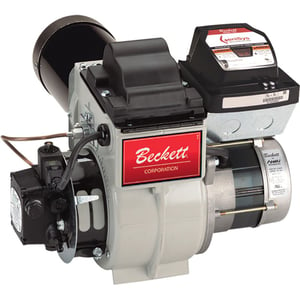While oil heat is one of the most common types of heating systems across the country today, many consumers still hold some popular misconceptions about the use of heating oil. In our oil heat misconceptions blog series, we'd like to take the time to address these widespread misunderstandings about fuel oil and its use in residential and commercial heating.
In fact, the belief persists that heating with oil can be costly and inefficient, but that couldn't be further from the truth. You will see that oil heat is in fact one of the most cost-effective heating fuels on the market, once you consider the many developments oil manufacturers have made in the past several decades. Modern oil heat is exactly that, modern and efficient. In this post, we'll discuss the common oil heat misconceptions surrounding fuel costs and efficiency and explain how modern bioheat may be the next evolution of high-efficiency oil heat.
Oil Heating Costs and Efficiency
Historically, the notion has spread among consumers that oil heat is more expensive than other types of heating fuel. While this may have been true for a time many years ago, fuel oil has significantly decreased in price since the 1980s when adjusted for inflation. However, when you take into consideration the relative efficiency of an oil heating system as compared to other common fuels, oil is actually one of the most cost-effective fuels on the market.
Fuel oil has several characteristics that contribute to its high efficiency levels in home and commercial heating. To begin, fuel oil burns hotter and reaches high temperatures more quickly than other fuels, meaning that less oil needs to be burned in order to reach comfortable temperatures inside a building. In fact, one gallon of heating oil puts out approximately 139,000 BTUs of heating energy. System efficiencies are key, and major strides have been made by heating appliance manufacturers. Redesigns of modern oil systems and appliances has made it possible to capture more of the heat energy produced by the fuel in the system. In the past, customers that may have needed between 2,000-3,000 annually to heat a home may now only need 600-800 gallons annually with a modern oil heat system. In contrast to the oil systems of the part, these modern systems provide unparalleled efficiency from an energy capture standpoint.
Bioheat: The Evolution of Oil Heat Efficiency
As researchers and manufacturers continue to push the heating and combustion field forward to create new opportunities, the advent of bioheat has been hailed as the next evolution of heating oil, moving us forward toward carbon neutrality. As blends of biofuel and heating oil continue to break into both the heating and transportation industries as a greener fuel option, it has become clear that the benefits of these biofuels expand upon the advantages of traditional fossil fuel oil. In many cases, bioheat has the potential to provide the high efficiency levels of fuel oil while reducing emissions and agricultural waste in the process. The opportunities for biofuel implementation will continue to grow as manufacturers continue to move toward bringing bioheat to more consumers across the country.
Consumers want clean, reliable operation, and bioheat helps meet their expectations. It has been shown that many systems using bioheat are easier to maintain by the trained oil heat professionals. Keeping the surfaces clean assures better heat transfer, which shortens burner run time, lowering fuel usage and operational costs. It is simple to see why bioheat has been hailed as the next evolution of clean, efficient modern oil heat.




